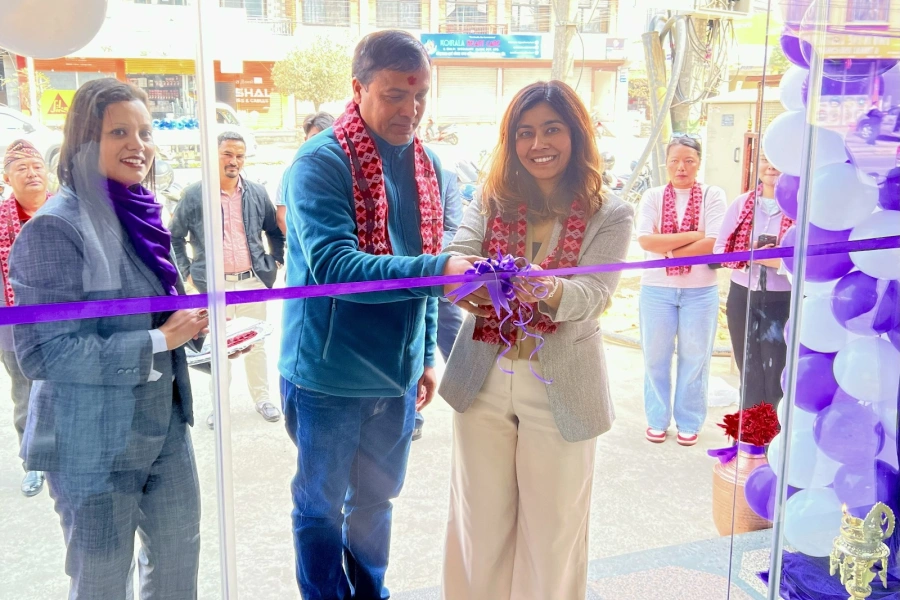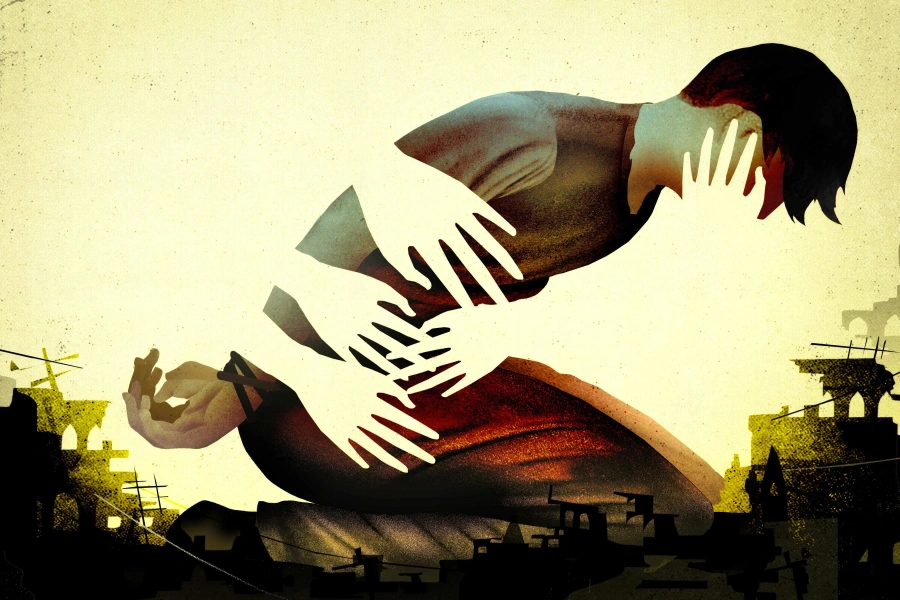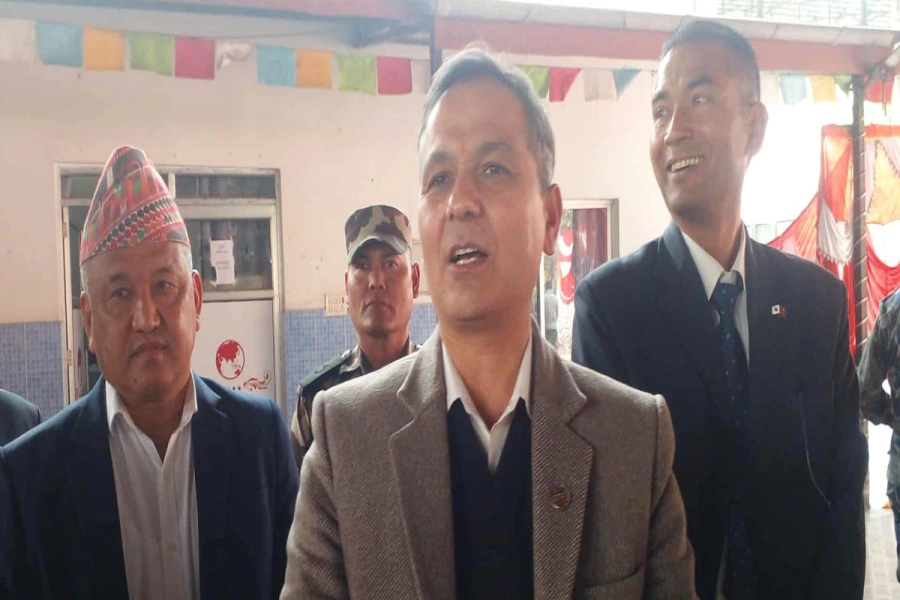KATHMANDU, April 3: A 52-year-old woman from Malangawa, Sarlahi, who gave birth to a son as a result of rape during the armed conflict, is facing severe health issues. Her 20-year-old son, born of this assault, suffers from significant mental deterioration. The woman struggles with her son's condition and her own declining health.
At a conference for sexual violence survivors in Kathmandu last Thursday, she shared her distress over having nowhere to stay. Dressed in a yellow saree and green blouse, with the saree's end covering her head, she revealed that uterine prolapse has left her unable to perform heavy labor.
In 2003, during a state of emergency, police officers abducted her husband from Malangawa, Sarlahi, accusing him of being a Maoist supporter. They blindfolded him, forced him into a vehicle, and drove off. The woman ran after them, pleading for his release, begging, "Please let my husband go; I will do whatever you ask."
The officers demanded her body in exchange for her husband's release. They raped her all night in a sugarcane field by the Bagmati River, holding her captive for an entire day and night.
When they finally let her go, she returned home battered. Shamed and frightened, she remained silent. Three days later, her husband returned home mentally traumatized with a broken leg.
Upon discovering she was pregnant, she confessed the truth to her in-laws, explaining that the officers had raped her to secure her husband's release. Instead of offering support, her in-laws threw her out while she was still pregnant, leaving her homeless. Without family on her maternal side, she had nowhere to turn.
She faced immense hardship, lacking food and shelter when she gave birth to her son in 2004 (BS 2061). Her husband, now immobilized, was unable to help. Despite undergoing surgery for his leg, he passed away three years later.
When the woman went to work, her young son suffered a head injury, which worsened his mental condition. Somariya Devi, Madhes Province Chairperson of the Conflict Victim Women National Network (CVWN), emphasized the urgent need for compensation. Survivors report that children born from rape during the armed conflict continue to struggle with education, healthcare, and citizenship rights.
TRC faces backlash over public call for sexual violence complai...

Victims of sexual violence continue to suffer mental and physical trauma. Although more survivors from the conflict era are now speaking out, many fear the social stigma of revealing their identities. The government still lacks concrete data on the total number of rape and sexual violence survivors in the country. To date, the Truth and Reconciliation Commission has received 314 complaints related to rape.
One survivor urged the government to ensure confidentiality, enabling victims to file complaints through local authorities without fear of exposure. Another survivor, Sumitra, stressed that victims of sexual violence expect support from the state. She noted that many survivors suffer from uterine health issues.
"They have struggled for years to reach this point," Sumitra said. "Now, they want the government to ensure confidentiality when they file complaints for justice." She criticized the law's three-month statute of limitations for complaints, calling it too short.
Geeta Rasaili, Vice Chairperson of the CVWN, emphasized the difficulties in securing justice and compensation for sexual violence survivors. "Bringing survivors to the conference itself was a major challenge. Leading such efforts is difficult for them," she said during the event. "Helping them understand their rights was even harder. Their families and society may have silenced them. Perhaps we, too, have failed them at times."
She recalled that when the government first distributed interim relief, it failed to recognize conflict-affected women as victims. "Authorities overlooked these cases from the start, pushing them aside repeatedly. Only after the commission's formation did 314 complaints get officially registered."
The Enforced Disappearances, Truth and Reconciliation Commission Act includes provisions for female survivors of sexual violence. The Act sets a three-month statute of limitations for filing complaints.
"The three-month limitation is unacceptable. It took this long just to raise the issue, and we have yet to reach many survivors," Rasaili said. "How will the authorities even register victims' complaints?"
She argued that no time limit should apply to such cases. She also pointed out that authorities have failed to address the issue of children born from rape. Since some survivors must file complaints without informing their families, she emphasized the need for strict confidentiality.
After the amendment to the Act, rape and serious sexual violence were categorized as "serious human rights violations." Section 6(a) of the Act includes the statute of limitations, stating:
"...Once the Chairperson and members are appointed, the Commission will publicly announce a call for complaints, granting a one-time, three-month deadline for victims of rape or serious sexual violence during the armed conflict—or their representatives—to submit their complaints to the Commission."
Shikha Bhattrai from the Global Survivor Fund works with survivors of sexual violence. Like Rasaili, she believes the three-month statute of limitations is insufficient. She argues that policies for compensation must include representation. Citing the example of Gambia, she highlighted how survivors of sexual violence were involved in the process. "Studies show that both men and women are willing to register complaints," she said. "There are also those who say, 'I don't need compensation, I don't want to speak about it.'" Bhattrai points out that survivors fear their confidentiality being compromised.
Survivors of sexual violence during the armed conflict argue that they need to discuss identity cards and compensation. They seek justice while maintaining their confidentiality. The issue remains unresolved regarding how to provide justice while ensuring confidentiality.
Section 13(1)(f) of the Transitional Justice Act mandates issuing identity cards and providing information after investigation. The Truth and Reconciliation Commission has distributed 618 identity cards to victims of various incidents. However, the distribution of identity cards has been temporarily halted following an order from the Supreme Court, as stated in the Commission's annual report.
During the armed conflict, individuals and families suffered from murder, abduction, disappearance, displacement, property confiscation, forced labor, rape, sexual violence, and torture. Sexual violence lacks visible proof, making it difficult to issue identity cards and provide relief from the state based on evidence.
There is also practical uncertainty about the type of identity cards to issue to survivors of rape and sexual violence. Survivors are reluctant to disclose their experiences when receiving identity cards, but the cards are necessary for compensation. Physical treatment is also essential. The issue of compensation is tied to the identity card.
Victims report that they have not received any relief from the state so far. Bikas Basnet, director of the Advocacy Forum, points out that while various provincial governments and local municipalities have decided to provide Rs 0.1 million in relief to the families of martyrs and murder victims, victims of torture and sexual violence have been excluded from this relief.
Rajendra Thapa, Deputy Secretary at the Prime Minister's Office, stated that two commissions are responsible for handling transitional justice. He mentioned that discussions on amending the law, forming commissions, and providing compensation also emerged during the review of the Fifth National Human Rights Plan. He emphasized that the government can support victims by integrating them into its ongoing programs. "I don't think the state should wait too long to provide health, education, employment, skills development, and subsidies for victims," he said. He also noted that provinces and municipalities have been addressing compensation efforts.
Women, both those involved in and not involved in the armed conflict initiated by the then CPN (Maoist) starting from February 13, 1996, have suffered at the hands of both the state and the rebel forces. In mid-March 2022, Devi Khadka, a leader of the Maoist Center, formed a national organization for women victims of sexual violence during the conflict. She only spoke openly about it after 14 years of the peace process.
Since Khadka started the campaign, sexual violence survivors have joined the organization. Currently, 900 women from 65 districts across the country have joined. 794 women from across the country have submitted complaints to government representatives, detailing the atrocities they faced during the conflict, committed by both the then ruling authorities and the rebel CPN (Maoist).
The Truth and Reconciliation Commission currently lacks officials. They submitted a complaint to Parashwar Dhungana, the Commission's secretary, on March 18, on behalf of women who suffered sexual violence during the conflict.







































